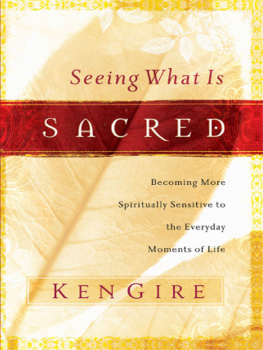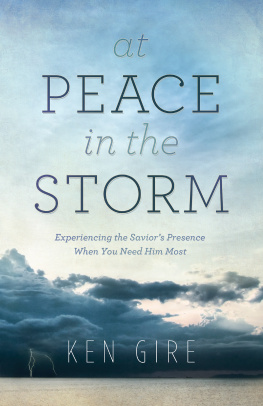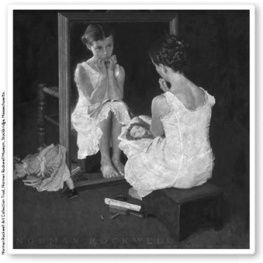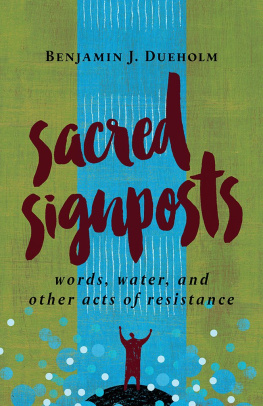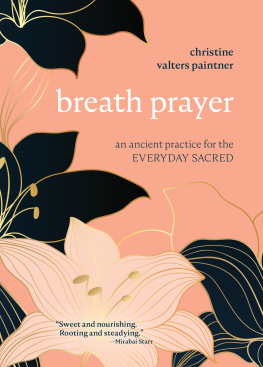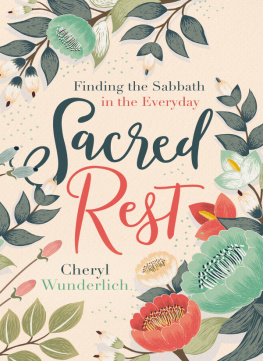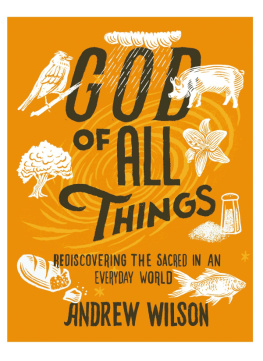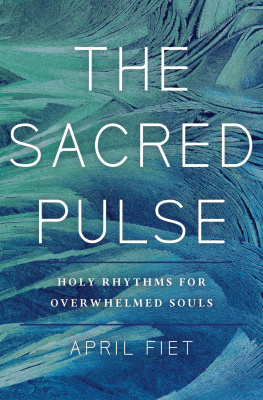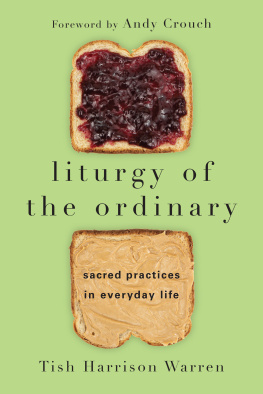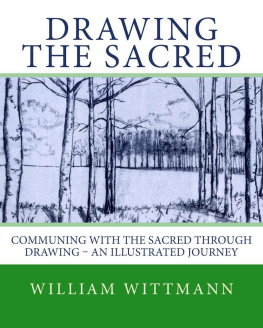Seeing What Is
SACRED
When it comes to sensitized living, Ken is a master. Ive watched him do life through its best and worst, and I can assure you that when it comes to the art of hearing God, he has it to give away. He is not only a master listener, he is also a master communicator... an author with a potent arsenal of stories, images, and exquisitely crafted words to make it a joy to listen and learn.
Roc Bottomly, pastor,
Bridgeway Church,
Edmond, Oklahoma

2006 by Ken Gire
All rights reserved. No portion of this book may be reproduced, stored in a retrieval system, or transmitted in any form or by any meanselectronic, mechanical, photocopy, recording, or any otherexcept for brief quotation in printed reviews, without the prior permission of the publisher.
Published by W Publishing Group, a division of Thomas Nelson, Inc., P.O. Box 141000, Nashville, Tennessee 37214.
W Publishing Group books may be purchased in bulk for educational, business, fund-raising, or sales promotional use. For information, please e-mail SpecialMarkets@ThomasNelson.com.
All Scripture quotations, unless otherwise indicated, are taken from the New American Standard Bible (NASB), 1960, 1977 by the Lockman Foundation.
Other Scripture references are taken from The Holy Bible, New International Version (NIV). Copyright 1973, 1978, 1984, International Bible Society. Used by permission of Zondervan Bible Publishers.
Library of Congress Cataloging-in-Publication Data available
ISBN 0-8499-1268-7
Printed in the United States of America
06 07 08 09 10 RRD 9 8 7 6 5 4 3 2 1
CONTENTS
WITH AN ETERNITY OF GRATITUDE
I DEDICATE THIS BOOK TO
SCOTT MANLEY.
WHEN YOU, THE READER, FINISH IT,
YOULL UNDERSTAND WHY.

Ah done passa missa lye.
Ah known missa law.
Ma lilten kine afu wienja.
Inna tyea shie done come Tizrah.
Inna tyea feliss, done come feliss.
The cryptic words come from the movie Nell, whose central character is played by Jodie Foster. After her mother dies, Nell grows up alone in the forest, where she knows little of the worlds influences and none of its conveniences.
She knows nothing of electricity or plumbing or refrigerators, nothing of television or radio or films, nothing of wars or politics, sports or fashions, nothing of the world beyond the forest.
But then the world beyond the forest discovers her. She is befriended and studied, and at last taken out of the forest by well-meaning authorities who feel she should catch up with the rest of the world so she can lead a fuller and richer life. Her fate finally falls into the hands of twelve jurors. After the lawyers on both sides finish their closing arguments, Nell gets up to speak for herself, addressing the jury in the primitive speech she learned as a young child.
Yo ha erna lay, she says.
You have big things, another woman translates.
Yo known erna lay
You know big things
Nell leans toward the jury, gripping the rail that separates them. Ma you nay seen inna alosees
But you dont look into each others eyes.
The intensity of her voice rises. An yo aken of a lilta-lilt.
And youre hungry for quietness.
The indictment registers on the faces of the jurors. Nell takes a breath as she searches for the right words. Ah done passamissa lye
Ive lived a small life
Ah known missa law.
And I know small things.
Nell turns from the jury, looking into the eyes of the judge, then into the eyes of those in the courtroom, desperately trying to get them to understand. Ma lilten kine afu wienja
But the quiet forest is full of angels
Inna tyea shie done come Tizrah
In the daytime there comes beauty
Inna tyea feliss, done come feliss.
In the nighttime, there comes happiness.
Every eye in the courtroom is riveted on her as she pauses, gathering her words like eggs from a nest. Nay tata fo Nell.
Dont be afraid for Nell.
Nay kee fo Nell.
Dont weep for Nell.
Ah hai nay erna keenan you.
I have no greater sorrows than yours.
In the backwoods with her bare feet and broken speech, Nell lived a small life, knowing only small things. She knew nothing of stock prices or cellular phones, nothing of the state of the union or the scandals of its leaders, nothing of the mysteries of the universe or the miracles of modern science.
Yet her nights were filled with happiness, her days with beauty, and she sensed something of the divine in the world around her.
Nell was right.
We shouldnt weep for her. We should weep for ourselves. For we have big things, know big things, yet our nights are filled with anxiety, our days with drudgery, and in the forest around us we see only trees.
We have big thingsmegachurches, multimedia resources, ministries that reach around the world. We know big thingsthe doctrines of the Bible, the differences between the denominations, the dateline to Armageddon.
But we dont look into each others eyes.
And were hungry for quietness.
Were starved for a life that not only senses the sacred in the world around us but savors it. Were famished for experiences that are real, relationships that are deep, work that is meaningful.
I think what were longing for is not the good life as it has been advertised to us in the American dream, but life in its fullness, its richness, its abundance. Living more reflectively helps us enter into that fullness.
The reflective life is a life that is attentive, receptive, and responsive to what God is doing in us and around us. Its a life that asks God to reach into our heart, allowing Him to touch us there, regardless of the pleasure it excites or the pain it inflicts. Its a life that reaches back, straining to touch the hem of Christs garment, allowing Him to turn and call us out of the crowd, regardless of how humiliating it is to stand before Him or how uncertain we are as to what He will say. Uncertain whether He will say, O you of little faith or Your faith has made you well. Uncertain whether He will say, Follow Me or Where I am going you cannot follow.
Regardless of the uncertainty, we can be certain of this: the words He speaks are words of life. That is why we must reach for them, receive them, and respond to them. Whatever they may say, however they may sound, whatever implications they may have for our lives, the words that proceed from His mouth offer life to our souls.
Those words are how our relationship with God grows.
Living reflectively is how we receive them.
Over the margins of life comes a whisper, a faint call, a premonition of richer living which we know we are passing by. Strained by the very mad pace of our daily outer burdens, we are further strained by an inward uneasiness, because we have hints that there is a way of life vastly richer and deeper than all this hurried existence, a life of unhurried serenity and peace and power.
THOMAS KELLY
A Testament of Devotion
The Sacredness of Life
Our life is not our own property but a possession of God. And it is this divine ownership that makes life a sacred thing.
ABRAHAM HESCHEL
Man Is Not Alone: A Philosophy of Religion
The phone call was from a stranger.
She had read a childrens book I had written and was wondering if I would look at a project of hers. She told me a little about the story, which centered around a family of bears. She also told me about having had her pancreas removed because of cancer, and that she had several young children and thought that maybe God was prompting her to write the book for them. I agreed to look at it and offer any help I could.
Next page
